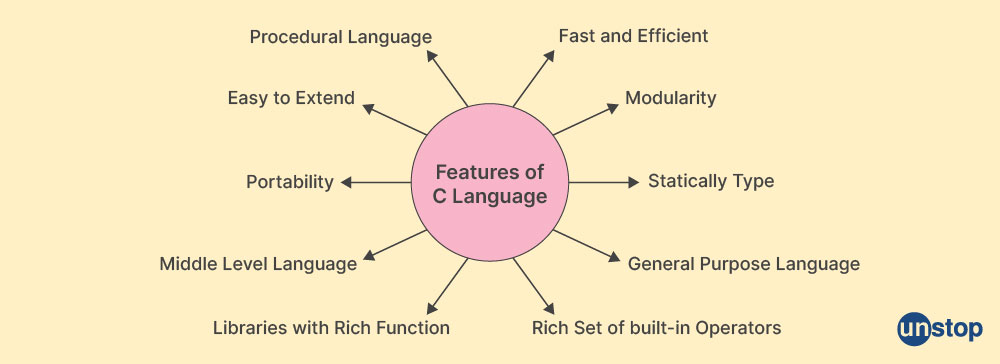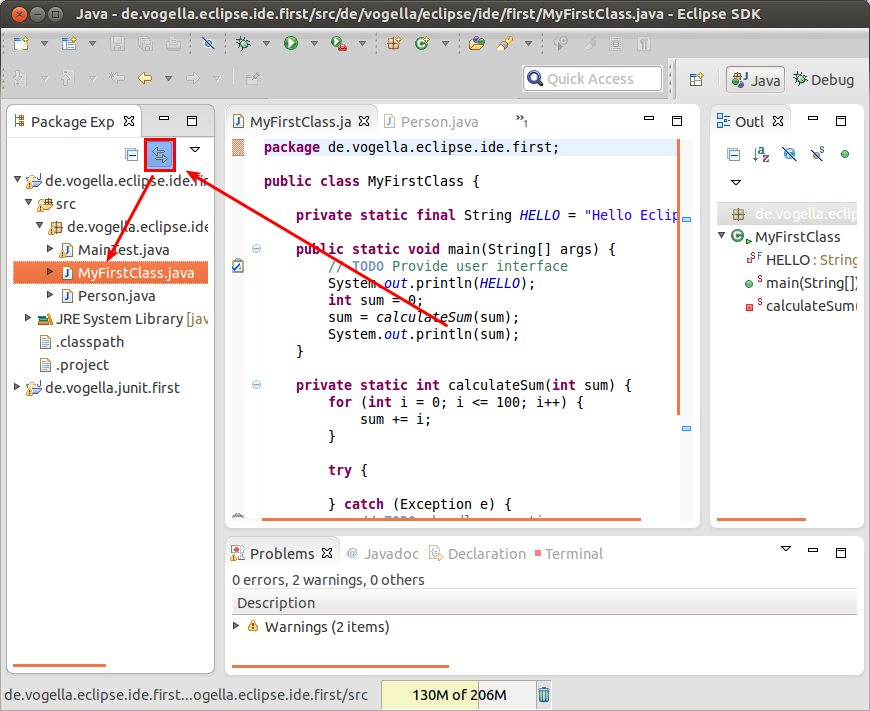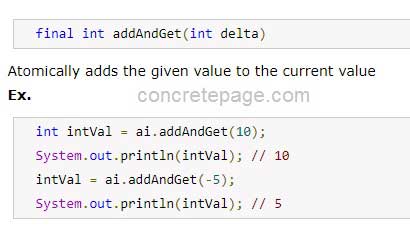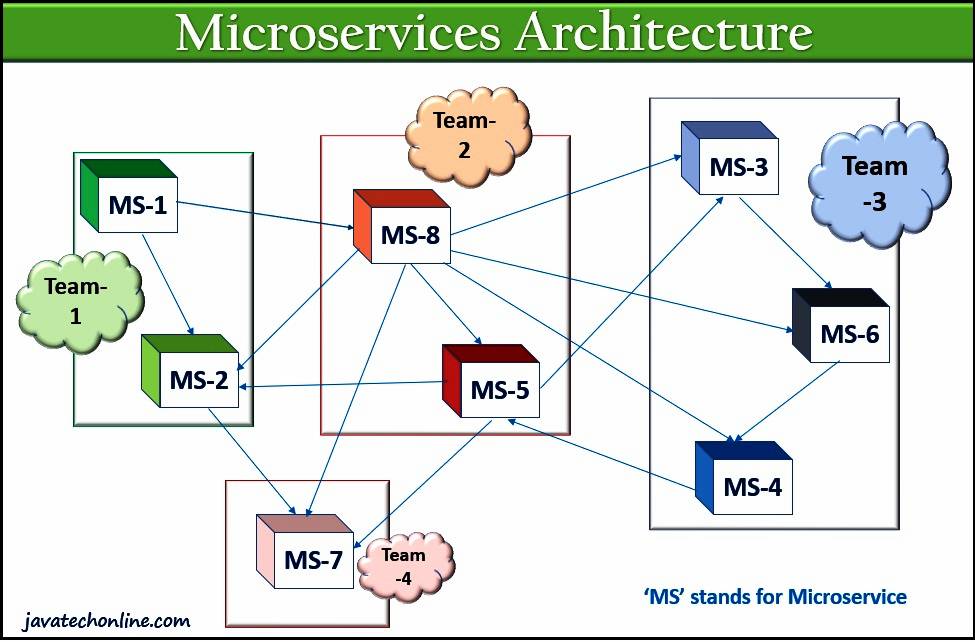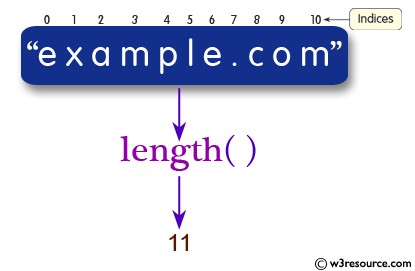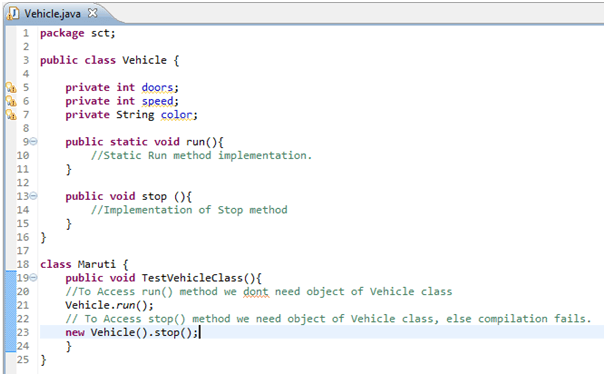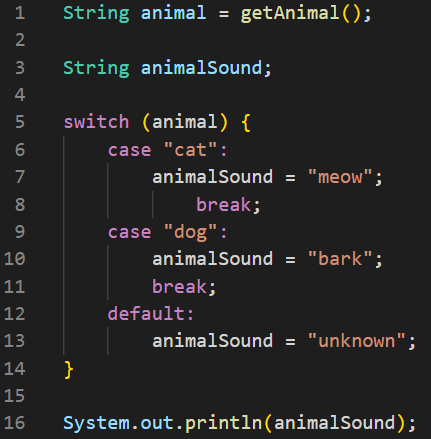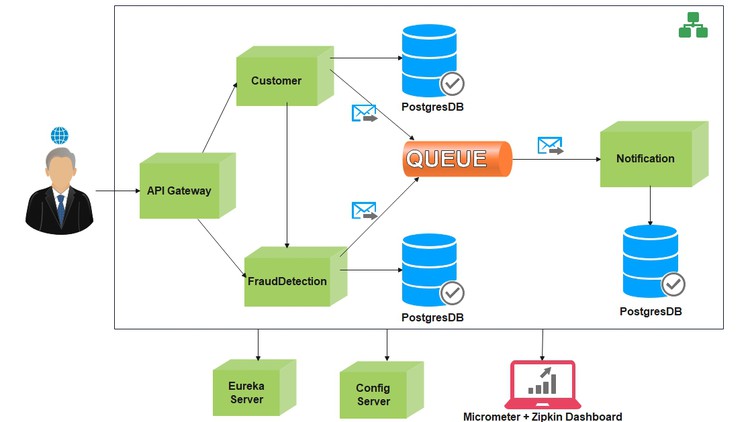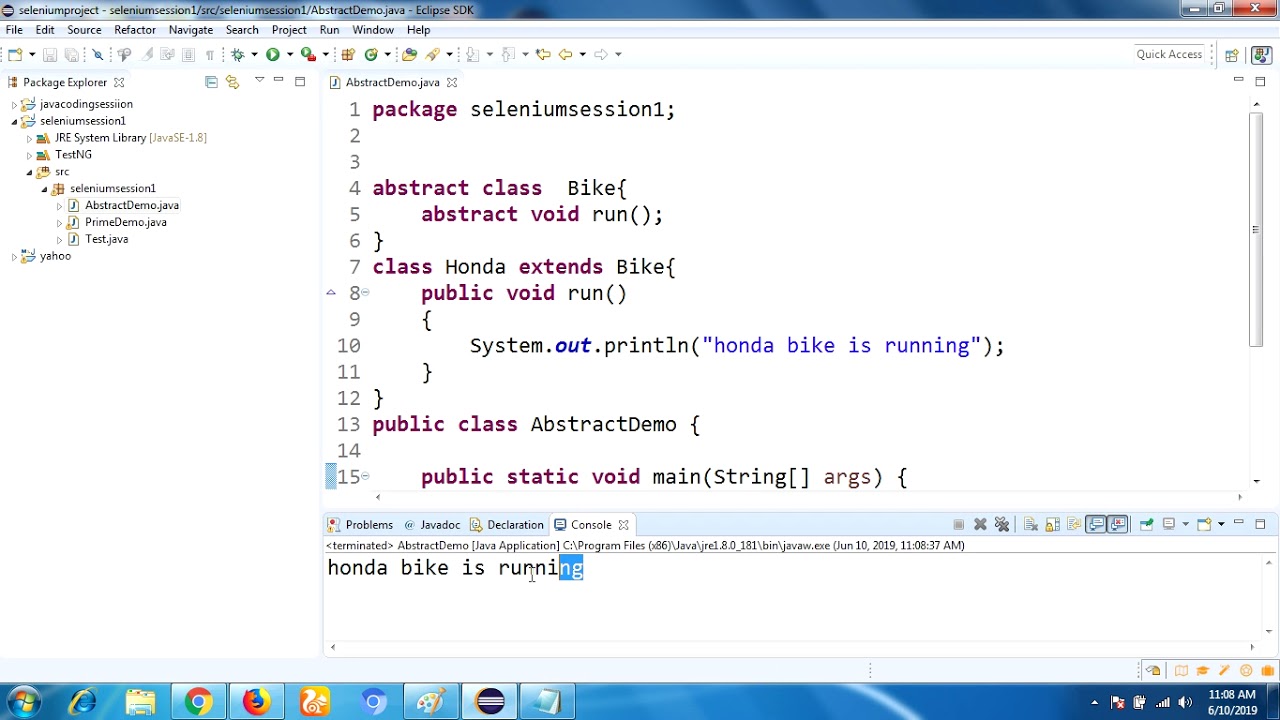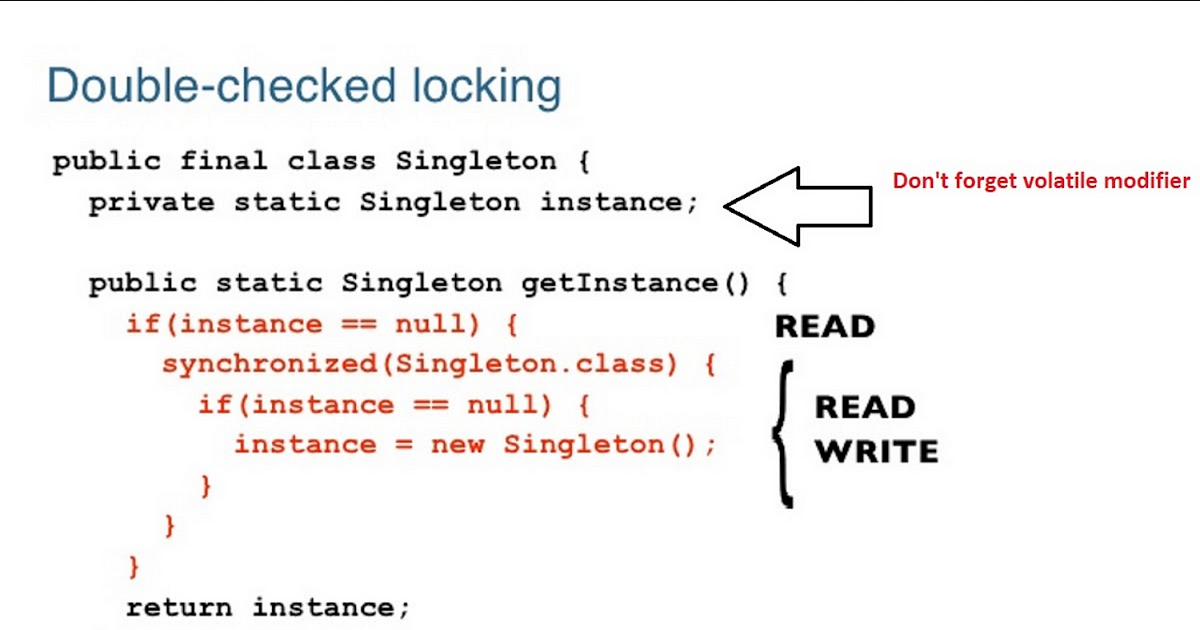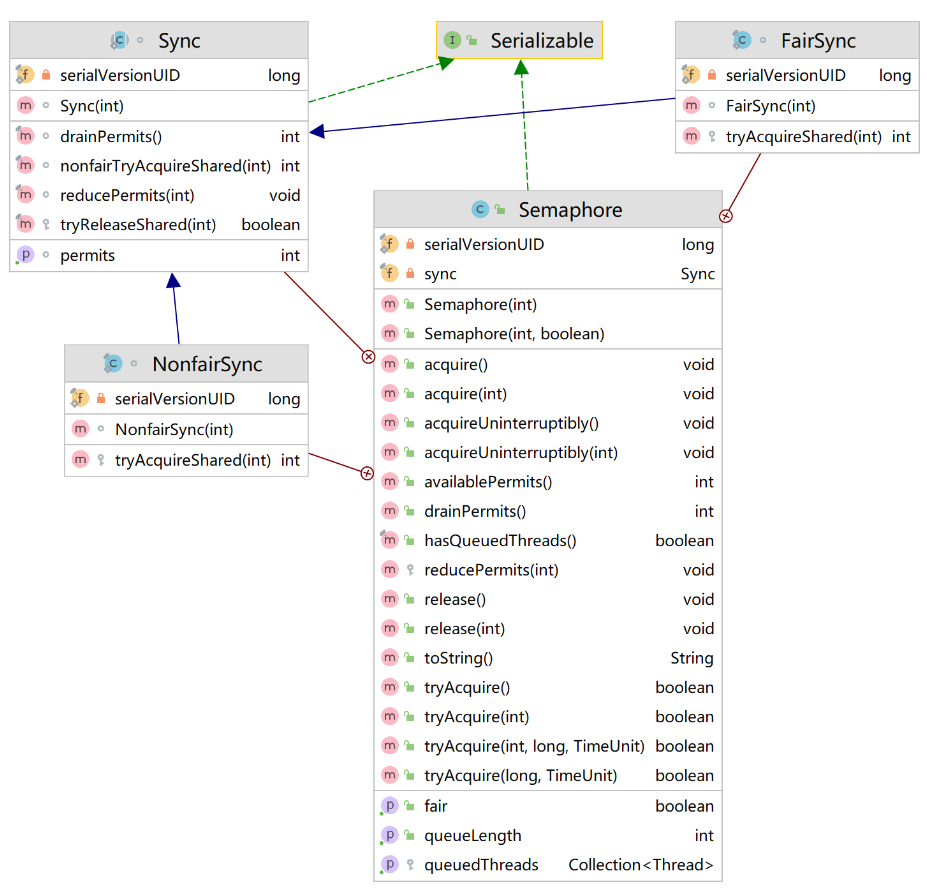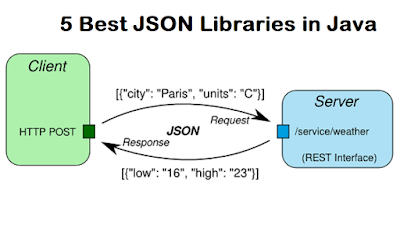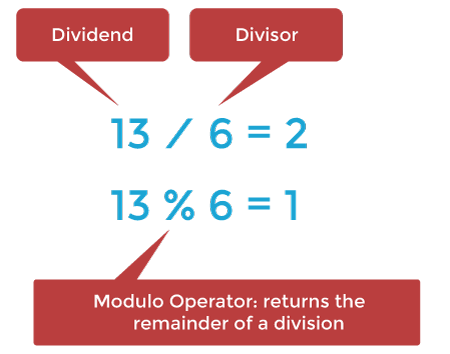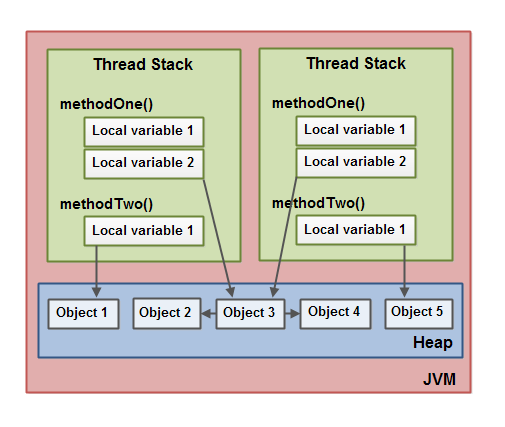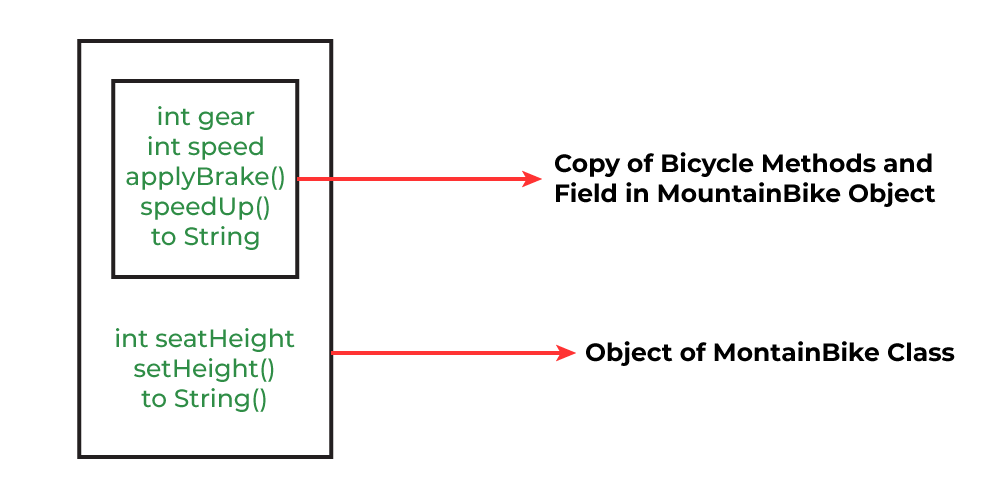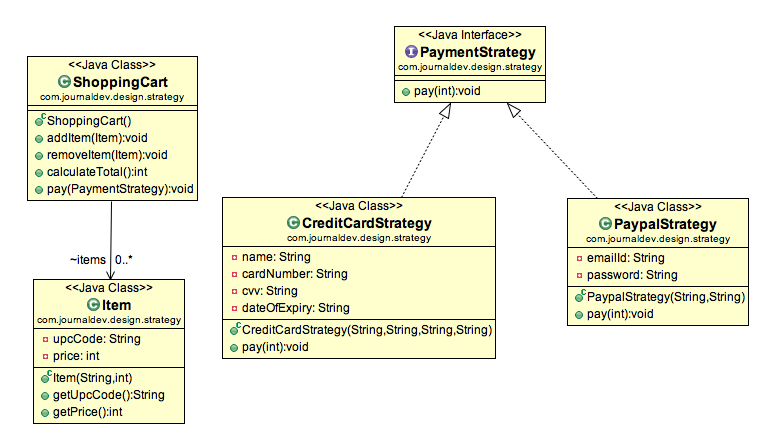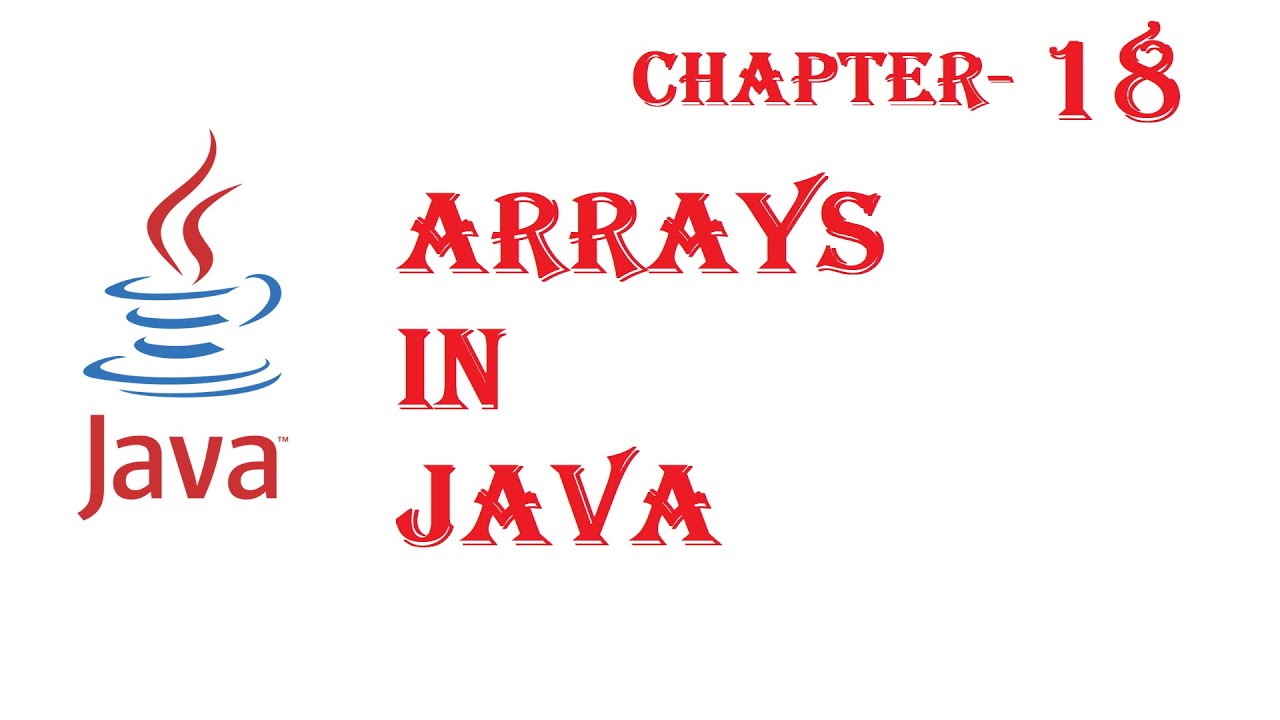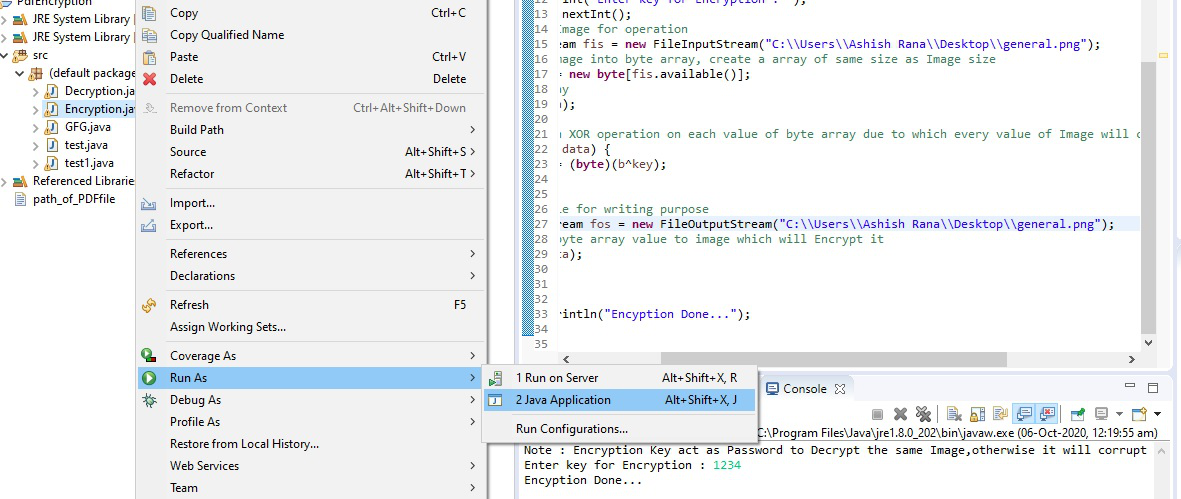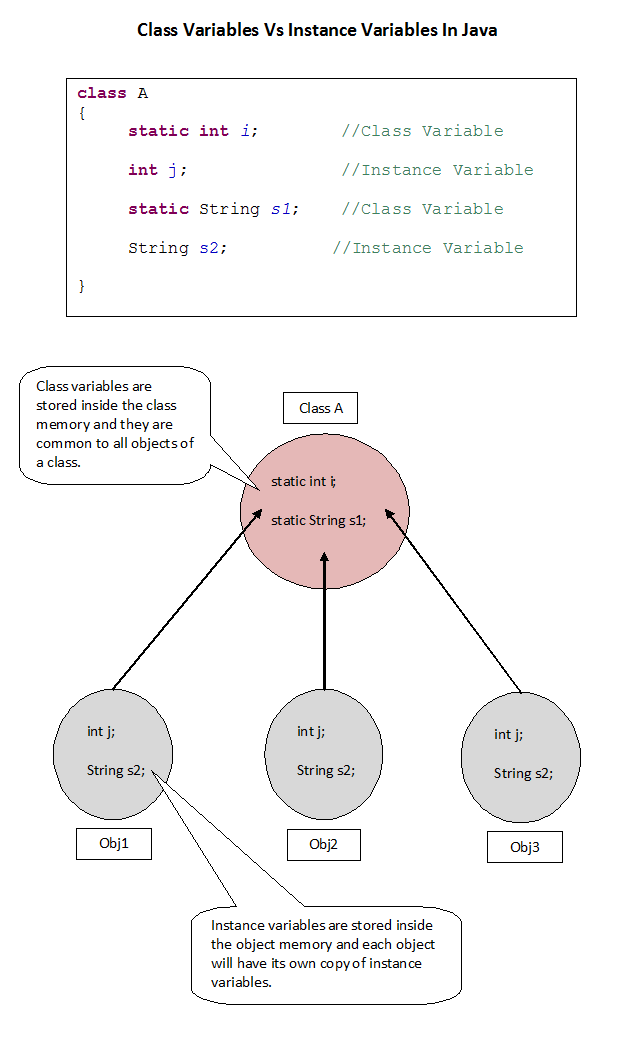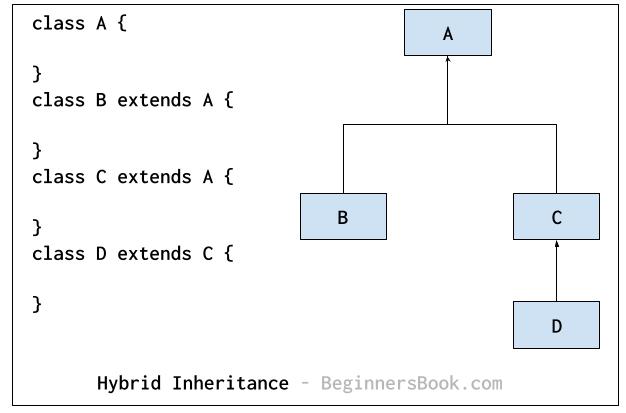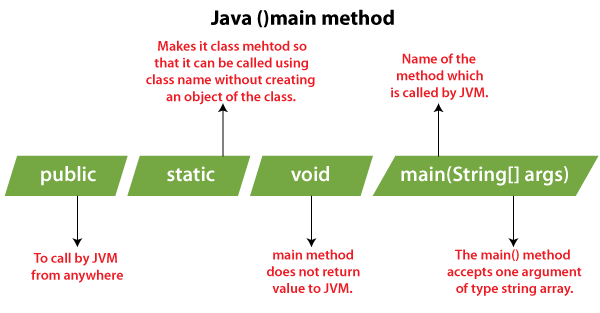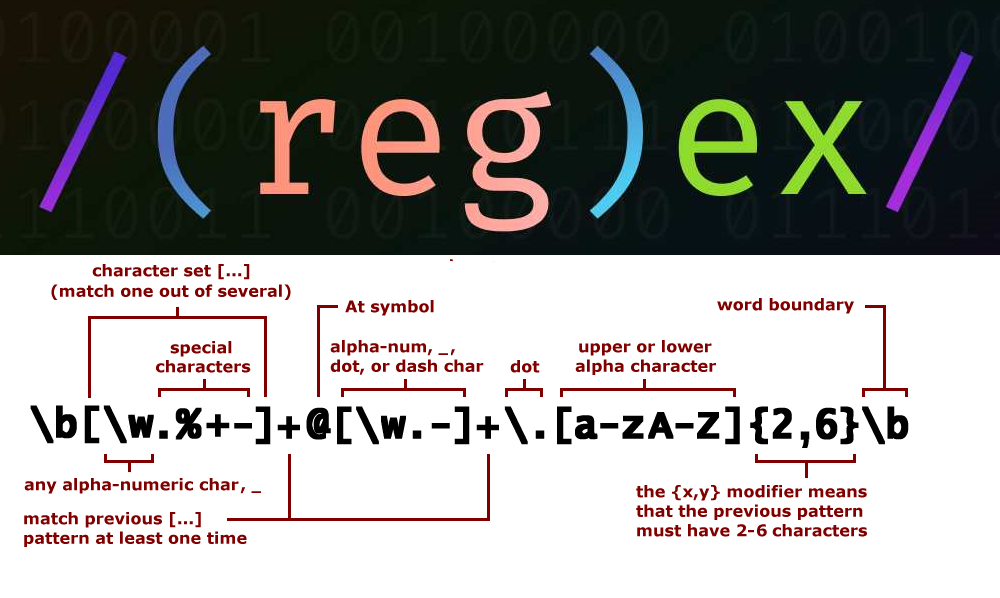How do you call a method on an instance in java using
How do you call a method on an instance in java using
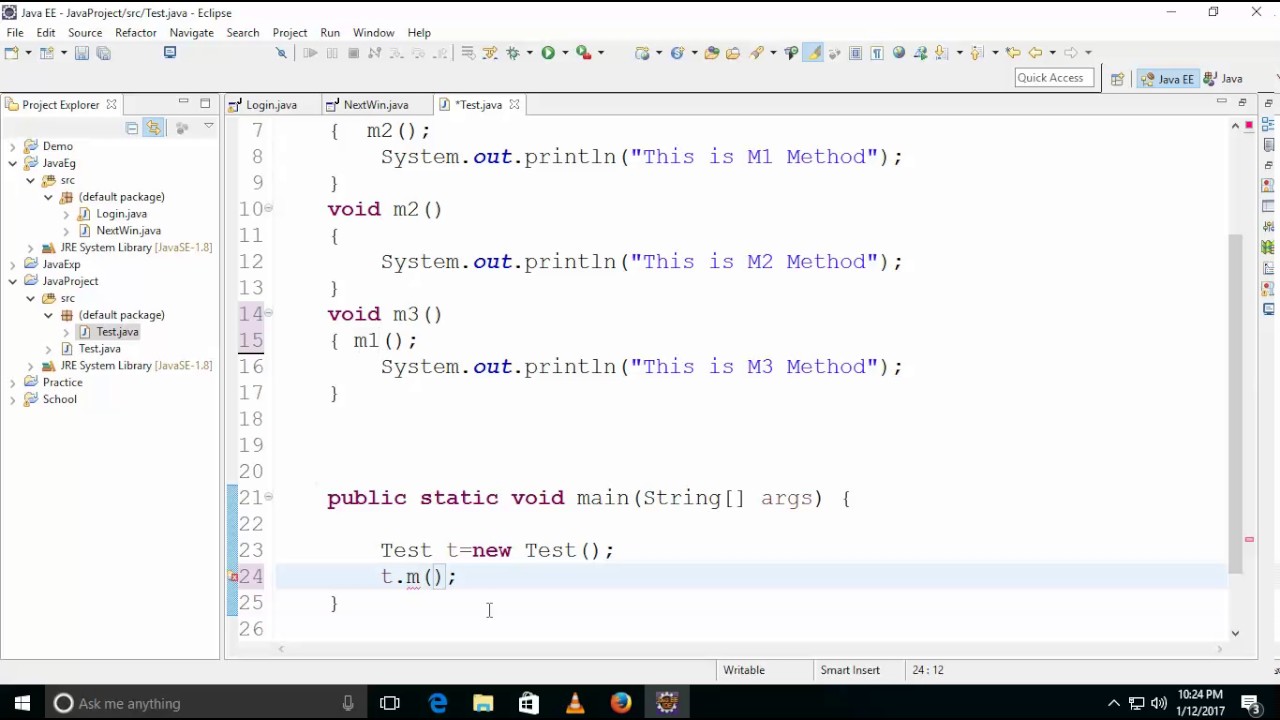
I'd be happy to explain how to call a method on an instance in Java!
In Java, when you create an instance of a class, you can think of it as creating a unique object with its own set of attributes (data) and methods (functions). The instance has its own "state" or "properties" that are separate from the class itself. You can call methods on this instance to interact with its state.
Here's a step-by-step guide on how to do just that:
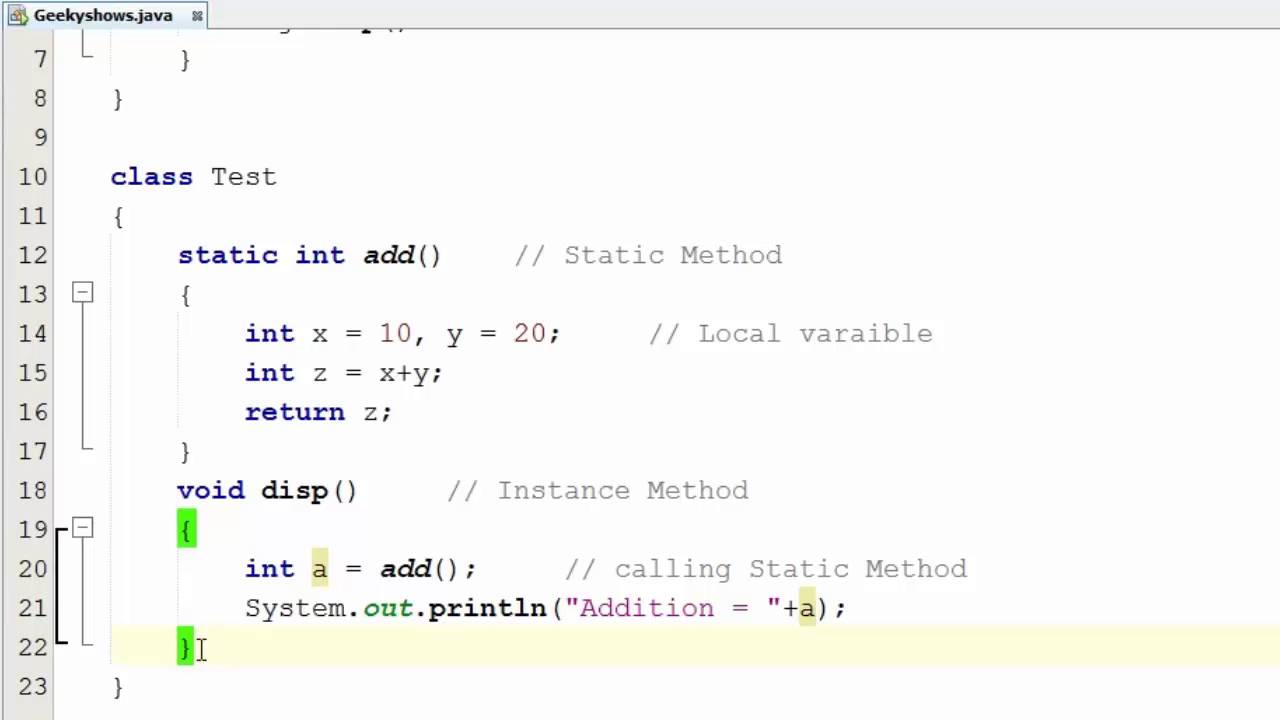
Step 1: Create an instance of a class
Let's say you have a class called Animal:
public class Animal {
public void makeSound() {
System.out.println("The animal makes a sound!");
}
}
To create an instance of this class, you would use the new keyword:
Animal myAnimal = new Animal();
Step 2: Call a method on the instance
Once you have created an instance, you can call methods on it. In this case, let's say you want to make the animal make a sound using the makeSound() method:
myAnimal.makeSound();
This would output: "The animal makes a sound!" in your console or IDE.
Why are we calling makeSound() on an instance?
Think of it like this: each instance of an Animal class has its own unique state. Maybe one instance is a cat, another is a dog, and so on. When you call the makeSound() method on one of these instances, you're telling that specific animal to make a sound.
More examples
Here are some more examples:
Let's say you have an instance of a class calledBankAccount:
public class BankAccount {
public int getBalance() {
return balance;
}
public void deposit(int amount) {
balance += amount;
}
}
You could create an instance and call the getBalance() method on it to see how much money you have:
BankAccount myAccount = new BankAccount();
int currentBalance = myAccount.getBalance(); // returns 0 initially
// or, you could use the deposit() method to add some funds
myAccount.deposit(100);
In this case, you're calling getBalance() on an instance of a BankAccount class to see how much money is in that account. You're also calling the deposit() method on that same instance to put more money in the account.
Conclusion
Calling methods on instances in Java allows you to interact with specific objects and their attributes (data). Each instance has its own state, so you can call different methods on different instances of the same class, depending on what you want them to do. This is a fundamental concept in object-oriented programming and is used extensively throughout Java and many other programming languages!
Would you like me to explain more about how objects interact with each other or anything else?
What is an instance method in Java
In Java, an instance method is a method that belongs to an object of a class and can access its instance variables. In other words, it is a method that is defined inside the class definition and operates on the state (data) of the object itself.
An instance method has access to the object's own data members, which are also known as instance variables or attributes. These variables are declared within the class body using the private, protected, or public access modifiers. The method can modify these variables or use them in its execution.
Here are some key characteristics of an instance method:
Access to instance variables: An instance method can read and write (modify) the object's instance variables, which are specific to each object. Owns no state: Unlike static methods (which we'll discuss later), instance methods do not share state with other objects or even themselves; each object has its own copy of the method's data. Operates on an object's state: Instance methods process and modify the state of a specific object, rather than working with class-wide or universal data. Inherently tied to an object's existence: As long as the object exists, the instance method will also exist and can be called.Consider this example:
public class Person {
private String name;
private int age;
public void setName(String name) {
this.name = name; // modifying the object's state
}
public void sayHello() {
System.out.println("Hello, my name is " + name); // accessing an instance variable
}
}
In the Person class, we define two methods: setName and sayHello. Both are instance methods because they operate on the object's state (i.e., its instance variables). The setName method modifies the object's name property, while the sayHello method uses this same property to print a greeting message.
When we create an object of the Person class and call these methods, each object will have its own version of these methods, which can modify or access its unique instance variables. For example:
Person person1 = new Person();
person1.setName("John");
person1.sayHello(); // Output: Hello, my name is John
Person person2 = new Person();
person2.setName("Jane");
person2.sayHello(); // Output: Hello, my name is Jane
As you can see, each object has its own name property and method implementations, which are not shared between objects. This encapsulation of state and behavior is a fundamental concept in object-oriented programming.
In summary, instance methods are essential for creating classes that represent complex entities with their own data and behaviors. By using instance methods, you can define reusable code that operates on the state of individual objects, making your programs more flexible, maintainable, and scalable.
